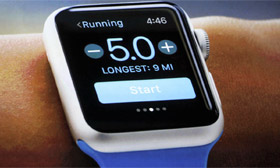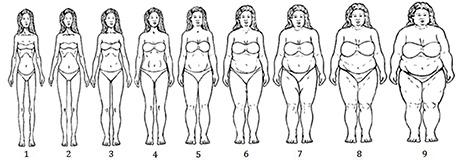Will the Evidence Information Service be a lobby group for scientists?
No, and this point warrants emphasis. The EIS is not a lobby group or special interest group. It will have no political agenda and will not offer value-based judgments. The EIS will instead provide an information service that politicians and civil servants can draw on, as needed, in reaching defensible, evidence-based decisions. It is vital that the EIS comes to be regarded as a knowledge broker rather than a political advocate. Any scientist who attempts to exploit the EIS for lobbying purposes will be removed from the network.
This commitment to the neutrality of evidence goes both ways: while we will encourage politicians to use our answers and evidence to support parliamentary motions, we will also ask them to avoid associating specific scientists with specific political viewpoints.
Why should politicians use such a service? Don't existing mechanisms already do what you're suggesting?
Civil servants, politicians, and their advisers have many vital skills. However, it is impossible for any individual or small group of individuals to have sufficient scientific knowledge to drive evidence-based decision-making in all areas.
To achieve this we need a collective hub to help generate the most accurate picture possible given the current state of knowledge. Gathering, assimilating and interpreting evidence is a skill that scientists and researchers acquire through many years of professional training. The EIS aims to complement several of the (excellent) existing systems by providing a system that will be broader in scope, informal, fast and minimally bureaucratic.
Why are you calling for members of the public to interview their local politicians instead of interviewing them yourself?
We have had a lot of constructive discussion and helpful feedback already from a number of MPs, members of the Welsh assembly and members of the House of Lords; however, politicians have busy schedules and most have little incentive to interact with us directly. On the other hand, all UK elected representatives have a professional duty to engage with their local constituents, which is why we believe a constituent-led consultation exercise is the best way forward.
Not all political decisions can or should be based on evidence
We agree. Many policy decisions also involve consideration of moral, legal and geopolitical factors. The EIS won't seek to subvert these essential elements of democracy.
But when a decision or policy is intended to be evidence-based, it is vital that it is based on the best available evidence and on the most informed and unbiased interpretation of that evidence. The EIS will assist politicians in meeting that objective.
Why would researchers participate voluntarily in such a scheme? Aren't they busy enough?
Yes, research professionals are busy. But our consultations with the academic community have revealed a strong appetite and enthusiasm to engage more directly with politicians. Over time the expansion of the EIS panel will lead to a highly distributed network that includes many thousands of experts. The time commitment required by individual researchers will therefore be minimal. Service on the EIS panel could also potentially be logged and recognised as part of the researcher's activities by their employer. Ideally, participation in the EIS will become a legitimate form of "impact" in future versions of the Research Excellence Framework, which is the system for assessing the quality of research in UK universities.
How will the EIS reach politicians who are unfamiliar with evidence-based policy or otherwise sceptical about science?
No system can force politicians to embrace evidence-based policy. Politicians are not accountable to the research community alone but to the wider electorate.
Evidence-based policy is nevertheless gaining prominence, with a recent focus on innovative approaches such as randomised controlled trials in public policy. Over time, we expect this growing influence to encourage politicians who may initially have been sceptical or hesitant to participate in the EIS. We will closely monitor engagement in the scheme and will incorporate research to assess the uptake and wider impact of the EIS on evidence-based policy-making.
One important incentive of the EIS is that it will help buttress politicians against ideological criticism and provide a rational mechanism for altering decisions when new evidence arises.
How will you prevent the EIS researcher network from becoming populated by cranks or quacks seeking to advance pseudoscientific agendas?
A core organising committee of research professionals will rigorously vet potential members for inclusion in the panel, with a key emphasis placed on academic credentials, current scientific or research standing, and motivation for joining. We will adopt a similar selection mechanism to that used by the Science Media Centre, which has been very successful. The governance of this mechanism will be fully transparent. We will offer tailored training programmes for users (policymakers) and providers (researchers).
What is the evidence that evidence-based policy works?
There is plenty of evidence to show that evidence-based policy works.
One widely cited example is policy related to the hole in the ozone layer. In the 1970s, scientists established that chlorine atoms influence stratospheric ozone and by the 1980s scientists had reported that the stratosphere above Antarctica had experienced large losses of ozone. Evidence was also provided to suggest that ozone loss was partly attributed to human use of chlorofluorocarbons. CFCs were used widely in aerosol cans, refrigerators and foam plastics. As a result of this overwhelming scientific evidence, coupled with increased public attention to the health dangers of skin cancer and cataracts as a result of ozone loss, national governments collectively enforced the Vienna Convention for the Protection of the Ozone Layer (1988) and the Montreal Protocol on Substances that Deplete the Ozone Layer (1989). Evidence suggests that these policies have been effective in halting ozone depletion.
Other examples of effective evidence-based policies include the health benefits of banning smoking in pubs and the reduction in accident fatalities as a result of seat belt legislation and use of air bags.
How will the EIS be funded?
Following the consultation exercise and parliamentary pilot trial, we will initially seek a capital sum to launch the service, which will be registered as a charity. Then, to ensure independence, we plan to adopt a comparable funding mechanism to the Science Media Centre in which donations per individual or organisation are capped at 5% of total annual running costs. All sponsors will be publicly acknowledged.
All evidence is tainted by bias, so your idea is flawed
This attitude would stifle all scientific progress and is effectively an argument for political decisions to be based solely on ideology. No evidence is ever "perfect"; it is impossible to remove human bias and error from the process of gathering and interpreting information. This makes it futile to wait until evidence has crossed some impossible threshold of perfection before allowing it to claim a role in political decision-making.
There is no such thing as certain evidence, only shades of uncertainty. This is a fact of life and a cause for taking care in policy-making. Knowledge gaps can be filled. In preparing briefings for politicians and civil servants, the EIS will use a traffic light system to convey degrees of certainty. This is similar to the grading of certainty adopted by the IPCC Assessment Reports, which, in assessing the latest scientific evidence for climate change, use a likelihood scale that ranges from "exceptionally unlikely" (0-1% probability) up to "virtually certain" (99-100% probability).
There is more to policymaking than research evidence. The EIS is an argument for a technocracy
Of course there is more, but there are many cases where policies are based on little or no evidence at all. Instead of fearing the consequences of evidence-based policy, perhaps we should be asking: what is the job of a policy? If it is to make something change – to make something happen – then it needs to work. And the best way to predict if something will work is to look at what we already know, ie the evidence.
It's not up to researchers to write policy. However, we need a better way for the UK academic system to share its knowledge with the political community. This is all the more pertinent given that current austerity measures have put a squeeze on resources that might have been used to provide an evidence base for policy. Academia has access to a greater evidence base, so it makes sense for the political community to take advantage of this public resource.
What counts as evidence?
Evidence can be thought of as any observation that supports a proposition. The quality of evidence varies from very weak (eg anecdotes) to strong (eg meta-analyses). In some fields, such as the biomedical and health sciences, there is an acknowledged hierarchy of evidence.
Will the EIS include junior as well as senior researchers?
Yes. Senior experts are often preferred by parliament and government on the assumption that seniority confers greater knowledge. Yet when it comes to science and policymaking, a senior scientist or researcher isn't necessarily more valuable than a junior one. As scientists move up the academic hierarchy they often find themselves gravitating toward management and administration, and further away from the acquisition of new knowledge. Despite some excellent schemes, junior scientists are underrepresented in contributing to public policy, even though they are closer to the coalface and tend to provide higher-quality peer reviews.
Will you be consulting with civil servants as part of your consultation exercise?
Yes, although we will be doing this through alternative channels rather than via local champions. We also want the EIS to be available to civil servants, and our research team will be contacting them to seek their feedback and to discuss.
My local politician is a government minister, which means I'm never going to get an interview
Please consider signing up anyway. You never know – the minister might hold a surgery. And even if the minister isn't available, one of his or her staff will respond to your query and should be available instead.
What sort of questions would the reactive mode of the EIS handle?
Some examples could include:
A recent news story linked a particular food additive to childhood leukaemia and I have received letters from constituents asking whether it should be banned from school dinners. What is the evidence that this chemical presents a health risk?
In the last six months, traffic accidents have increased by 27% at a particular junction in my constituency. Is this a genuine increase or the play of chance?
I am unsure how to interpret the statistical analysis reported in this policy briefing.
A constituent has drawn my attention to a potential new treatment for heart disease. Can you tell me if the research that led to this claim was well designed and carried out?
Co-founders of the Evidence Information Service: Chris Chambers is senior research fellow in cognitive neuroscience at Cardiff University; Natalia Lawrence is a senior lecturer in translational medicine at the University of Exeter; Andrew Kythreotis is a lecturer and research fellow in environmental and climate policy and governance at Cardiff University; Gerard O'Grady is a senior lecturer in linguistics at Cardiff University; Sven Bestmann is a reader in motor neuroscience at University College London


















